
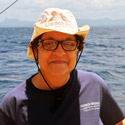
Auxiliary Professor and Researcher - University of Havana (CIM-UH)
Dr. Beatriz Martínez is the Cuban leader for macroalgae for the Cuba’s Twilight Zone Reefs and Their Regional Connectivity project and will participate on Leg 1. She is Professor of Marine Botany and Research Seminaries & Head of Marine Ecology Group, Center of Marine Research, at the University of Havana. She works on the diversity and ecology of seagrasses and seaweeds in Cuba, the assessment of the health of coastal-marine ecosystems (seagrasses, coral reefs), and climatic change and its effects on marine biodiversity. She has received several awards for her scientific results, including the Awards of Havana University, the Cuban Academy of Sciences, and the Critics of Scientific Book of the Cuban Institute of Book (2015) for Macroalgas marinas de Cuba.
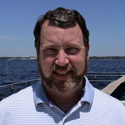
Research Fisheries Biologist - NOAA Fisheries
Andy David will identify and record fish species observed with the ROV on Leg 1 of the expedition. He is a Research Fisheries Biologist with NOAA’s National Marine Fisheries Service (NMFS) in Panama City, FL. He has worked for NMFS since 1990 and focused upon reef fish and corals in Marine Protected Areas (MPAs) in the Gulf of Mexico and U.S. South Atlantic for most of the last 15 years. Andy’s research focus is reef fish associated with hardbottom habitats on the outer edge of the continental shelf. These have been studied in the Gulf of Mexico and U.S. South Atlantic and the opportunity to examine insular populations off Cuba will offer an excellent occasion for comparison.
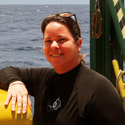
Professor & Director of Center of Marine Research - University of Havana (CIM-UH)
Dr. Patricia González is the Cuban scientific leader of the project Cuba’s Twilight Zone Reefs and Their Regional Connectivity and will participate on Leg 1. She is member of Marine Ecology group. She is Professor of Marine Ecology and Director of Center of Marine Research at the University of Havana (CIM-UH). She is the Advisor of more than 20 graduate and Master’s theses. She conducts research on the community, population and individual level indicators in ecological research of corals, sponges and gorgonians, natural and anthropogenic impact on coral reefs, and conservation and management of coastal ecosystems. She also heads the Master’s and Ph.D. Programs in Marine Biology and Aquaculture at CIM-UH and is on the affiliate faculty at the University of Vermont.
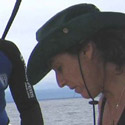
Affiliated Research Professor - Harbor Branch Oceanographic Institute at Florida Atlantic University
Dr. Maria Cristina Diaz will participate in the ROV dives and be responsible for sponge collections and identifications of the expedition. Dr. Diaz is an internationally recognized expert on Porifera, who has been carrying out research on the tropical western Atlantic, and Indo-Pacific sponge fauna for 25 years. Dr. Diaz has reviewed the taxonomic classification of various sponge taxa, described unknown species, and new genera, created sponge guides, applied molecular tools to reveal microbial associates to sponges, measured nitrification rates of Caribbean sponges, and studied phylogentic relationships among extant taxa.
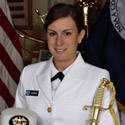
Fisheries Biologist - NOAA Corps
LTJG Felicia Drummond will be responsible for reef fish identification on Leg 2 of the expedition. Felicia graduated with a B.A. in Environmental Biology with a minor in Chemistry from the University of Vermont in 2011. She started her career as a NOAA Corps Officer in January 2013 and completed Officer Candidate School in May 2013. She reported to Marine Operation Center-Pacific, assisting the NOAA fleet's Environmental Compliance Specialist, Julie Wagner, in training, guidance, procedure development and research on all compliance issues for 18 ships. In October 2013, Felicia reported to NOAA Ship Nancy Foster and served as a junior officer for 2 years taking on the roles of Deck Watch Officer, Environmental Compliance Officer and Navigation Officer as well as ship's diver, and small boat coxswain. Felicia reported to the NOAA Fisheries Panama City lab in 2015. She is currently working as a fisheries biologist on MPA and Gulf Coast fisheries surveys.
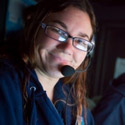
Biological Research Specialist - Harbor Branch Oceanographic Institute at Florida Atlantic University
Stephanie Farrington will be the Data Manager and Benthic Community Analyst on this expedition. At Harbor Branch, she works with John Reed on mesophotic and deep coral reef projects. She is the principal contributor to the design and development of the Database Solution for Benthic Surveys (DSBS) utilized on all NOAA CIOERT mesophotic and deep-water surveys since 2011. DSBS is used in conjunction with ArcGIS to visualize and characterize habitats and includes detailed maps of all collection sites and hot links to samples, photographs, species density, percent cover analysis, MDS analysis, and geospatial analysis. In 2014 she was selected as the Biological Science Co-Lead on the Okeanos Explorer during the Exploration of the Gulf of Mexico Cruise verbally annotating and directing ROV dives to a live internet audience of >700,000 people a day. In July, she will be a guest speaker, sharing her experience on the Cuba Expedition at the Mensa Annual Gathering in Hollywood, FL.
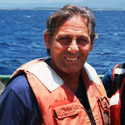
Specialist in Oceanography - Marine Investigations Agency of the Geocuba Estudios Marinos
Jorge Viamontes is one of the Cuban specialists of oceanography for the Cuba’s Twilight Zone Reefs and Their Regional Connectivity project and will participate in Leg 1 of the expedition. He is a physical oceanographer who studies the dynamics and hydrological water characteristic in bays, estuaries and the ocean. He currently has projects on an oceanographic database for the study of the global change effects on the marine and coastal biodiversity of Cuba, global changes, and evolution of the Cuban marine environment.
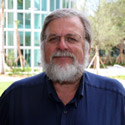
Research Professor - Harbor Branch Oceanographic Institute at Florida Atlantic University
Dr. M. Dennis Hanisak will be participating in the ROV dives on Leg, be responsible for macroalgal collections, and led education/outreach activities. He is Research Professor, and Director of the Indian River Lagoon Observatory and Director of Education at Harbor Branch Oceanographic Institute at Florida Atlantic University. He has over 30 years of experience in marine biology and ecology with an emphasis on marine plants, particularly macroalgae (seaweeds) and seagrasses. He has conducted research on marine plants, with extensive experience on mesophotic reefs in Florida, the Bahamas, and the Caribbean. In his education endeavors, he is dedicated to fostering a deeper understanding and appreciation by students and the public of the importance of the oceans and their impact on our lives.
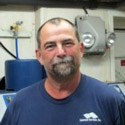
Operations Director - Undersea Vehicles Program, University of North Carolina Wilmington
Lance Horn is one of the two-man crew operating and maintaining the ROV during the cruise. This work will include piloting the ROV, tether management on the back deck, operating the manipulator, and fixing any issues that come up with the ROV during the cruise. Lance is responsible for managing the Undersea Vehicles Program at the University of North Carolina at Wilmington, fostering intra-NOAA and extramural collaborations, and pursuing technology to keep the Program and its undersea assets on the cutting edge of in situ marine science research. The program currently operates three remotely operated vehicles (ROV) and a Slocum glider autonomous underwater vehicle (AUV). Lance has participated in undersea research activities as mission coordinator, AUV supervisor/technician, chief ROV pilot/technician, and diver for 31 years.

Associate Research Professor - Harbor Branch Oceanographic Institute at Florida Atlantic University
Dr. Mingshun Jiang will investigate the carbonate chemistry of the mesophotic and deep coral reefs using in-situ mapping of pCO2/pH with state-of-the-art sensors onboard the ROV and traditional water sampling. He is a physical oceanographer specializing in coupled physical-biogeochemical-ecological modeling. His research interests include estuarine and coastal dynamics, iron and carbon cycles in shelf and open oceans, water quality and ecosystem dynamics in coastal and shelf regions, and coastal inundation. Dr. Jiang has been developing numerical models for various marine systems from coastal to open oceans including Boston Harbor and Massachusetts Bay, Indian River Lagoon, south Florida Shelf and Florida Straits, and Southern Ocean.

Researcher and Head of Benthos Department - Institute of Marine Sciences (ICIMAR-CITMA)
Linnet Busutil is the Cuban specialist of sponges for the Cuba’s Twilight Zone Reefs and Their Regional Connectivity project and will participate in both legs of the expedition. She has a Master’s Degree in Marine Biology and Aquaculture with emphasis in Marine Ecology from the University of Havana. Her research interests include ecology and taxonomy of marine sponges, ecology of coral reefs, and benthic ecology. Her work has been devoted to the investigation of coral reefs, mainly of marine sponges. She has participated in scientific projects involving species inventories, community health assessments, and proposals for environmental bioindicators.
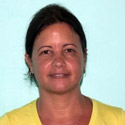
Specialist in Marine Protected Areas - National Center of Protected Areas (CNAP-CITMA)
Juliett González is one of the Cuban specialists of corals for the Cuba's Twilight Zone Reefs and Their Regional Connectivity project and will participate on Leg 2 of the expedition, as well as in the implementation of the results of the expedition in the management of Marine Protected Areas (MPAs). She is a Specialist in Marine Protected Areas at the National Center of Protected Areas (CNAP-CITMA). She received her Master in Natural Environments, Global Change and Socioecological Sustainability at the Universidad Internacional de Andalucía in Spain. She has worked on several projects devoted to management and monitoring of MPAs, especially focused on coral reefs in Ciénaga de Zapata National Park and invasive species.

Oceanographer Specialist - Marine Research Agency (AIMAR), GEOCUBA Estudios Marinos
Daniel Estrada is one of the Cuban specialists in oceanography for the Cuba’s Twilight Zone Reefs and Their Regional Connectivity project and will participate in Leg 2 of the expedition. He has worked as an Oceanographer Specialist at the Marine Research Agency, belonging to GEOCUBA Estudios Marinos in Havana since 2012. He has specialized in studies on physical oceanography (sea level variations, hydrology and waves), chemistry, and the environment. He has participated in research and development projects and taken a postgraduate course in digital image processing.
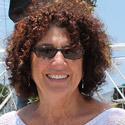
Research Professor & Executive Director of the NOAA Cooperative Institute for Ocean Exploration, Research, and Technology - Harbor Branch Oceanographic Institute at Florida Atlantic University
Dr. Shirley Pomponi will characterize the mesophotic sponge community sampled during this expedition. She is Research Professor and Executive Director of the NOAA Cooperative Institute for Ocean Exploration, Research, and Technology, Harbor Branch Oceanographic Institute at Florida Atlantic University, and Special Professor in Marine Biotechnology at Wageningen University, Netherlands. Her research focuses on marine biotechnology, in general, and sponge systematics, cell and molecular biology, in particular. Dr. Pomponi co-chaired the National Academy of Sciences/National Research Council report on ocean science priorities for the next decade, “Sea Change: 2015 – 2025 Decadal Survey of Ocean Sciences”.
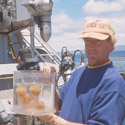
Chief Scientist & Research Professor - Harbor Branch Oceanographic Institute at Florida Atlantic University
John Reed is the Chief Scientist for this expedition and will lead the ROV surveys to discover and characterize Cuba’s mesophotic reefs. John is a Research Professor for the Cooperative Institute for Ocean Exploration, Research, and Technology (CIOERT) at Harbor Branch Oceanographic Institute at Florida Atlantic University, and has led research and conservation programs on deep-water and mesophotic coral reefs at HBOI for over 40 years. His research and outreach efforts on the Oculina coral reefs off Florida resulted in the establishment of the 600-sq.mi. Oculina Coral Habitat Area of Particular Concern (OHAPC), the first marine protected area in the world to protect deep-water coral ecosystems. His research on the deep-water Lophelia coral reefs off the southeastern United States, which form coral mounds over 300-ft tall and at depths of 2800 ft, was instrumental in NOAA’s designation of the Deep-water Coral HAPC which extends from North Carolina to south Florida, protecting over 23,000 sq. mi. of fragile coral and essential fish habitat.
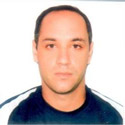
Researcher - Institute of Marine Sciences (ICIMAR-CITMA)
Alain García is one of the Cuban specialists of fishes for the Cuba’s Twilight Zone Reefs and Their Regional Connectivity project and will participate in Leg 2 of the expedition. He obtained a Master's degree in Marine Biology and Aquaculture in Marine Ecology from the Center for Marine Research of the University of Havana (CIM-UH) in 2015. His research has focused on biology and ecology of marine fish in reefs, mangroves and seagrasses.
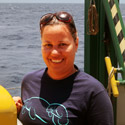
Researcher and Specialist in Marine Protected Areas - Guanahacabibes National Park, ECOVIDA (CITMA)
Dr. Dorka Cobián is the Cuban leader for fishes for the Cuba’s Twilight Zone Reefs and Their Regional Connectivity project and will participate in Leg 1 of the expedition. In 2010 she graduated with a Master's degree in Marine Biology and Aquaculture with Mention in Marine Ecology (CIM-UH). In 2016 she received finished her Ph.D. in Ecology and Sustainable Development in El Colegio de la Frontera Sur, Mexico. She has been working as a specialist in Guanahacabibes National Park since 2002, which is part of ECOVIDA, Ministry of Science, Technology and Environment of Cuba (CITMA). She is in charge of the program of research and monitoring of the park and has been involved in the creation, management, strengthening, and enforcement of the Guanahacabibes National Park. She has also led or has been involved in projects related to research, monitoring, and management of endangered species, coral reefs and habitat quality of areas all over the Cuba.
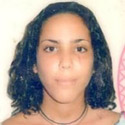
Researcher - Cuban National Aquarium (ANC-CITMA)
Patricia González is one of the Cuban specialists of macroalgae for the Cuba’s Twilight Zone Reefs and Their Regional Connectivity project. She is a Researcher in the Benthos Department at Institute of Marine Sciences (ICIMAR-CITMA). She has specialized in studies on ecology, biodiversity, taxonomy, and systematics of macroalgae and seagrasses. She has worked as a phycologist at the Oceanology Institute (presently ICIMAR), Havana, since 2011. She received a Master´s degree in Marine Biology and Aquaculture, specializing in Marine Ecology at the Marine Research Center, University of Havana.
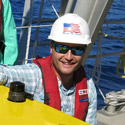
Ph. D. Student, Integrative BiologyHarbor Branch Oceanographic Institute at Florida Atlantic University
Michael Studivan will participate in the ROV dives on Leg 1 to characterize benthic habitat and conduct molecular analyses of mesophotic corals to assess ecological connectivity and symbiont types. Michael is a Ph.D. candidate who joined the lab of Dr. Joshua Voss in 2012 under the NOAA Cooperative Institute for Exploration, Research, and Technology. His dissertation research examines the ecology and genetic connectivity of mesophotic coral reefs and the interaction of environment and genotype on coral morphological adaptation to depth. He is a technical diver, drone pilot, and filmmaker specializing in underwater and aerial media. Prior to Michael’s graduate work, he completed his undergraduate degree at St. Mary’s College of Maryland and then worked at the Chesapeake Biological Laboratory identifying Arctic benthic invertebrates for climate change and petroleum exploration research.
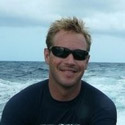
Assistant Research Professor - Harbor Branch Oceanographic Institute at Florida Atlantic University
Dr. Joshua Voss will participate in the ROV dives on Leg 2 to characterize benthic habitat and conduct molecular analyses of mesophotic corals to assess ecological connectivity and symbiont types. His primary areas of interest include shallow and mesophotic coral reef ecology, coral health and disease, molecular ecology, marine conservation and management. Through Harbor Branch’s Robertson Coral Reef Program and the NOAA Cooperative Institute for Exploration, Research, and Technology, he works to discover, characterize, and protect coral reefs ecosystems. Dr. Voss is a certified technical diver and scuba instructor who has completed over 1300 scientific dives and led more than 30 scientific expeditions primarily in the Bahamas, Florida Keys, Dry Tortugas, and Gulf of Mexico with additional investigations in Panama, Belize, Curacao, Bonaire, Dominica, USVI, and St. Eustatius.
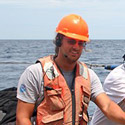
ROV Pilot/Technician - Undersea Vehicles Program, University of North Carolina Wilmington
Jason White is one of the two-man crew operating and maintaining the ROV during the cruise. This will include piloting the ROV, tether management on the back deck, operating the manipulator, and fixing any issues that come up with the ROV during the cruise. Jason is an ROV pilot/technician for the Undersea Vehicles Program at the University of North Carolina at Wilmington (UNCW). Jason received his B.S. in Marine Science and Meteorology from N.C. State University in 2008. After graduation he worked for C & C Technologies as a hydrographic surveyor in the Gulf of Mexico conducting NOAA marine debris surveys and Oil & Gas surveys. He then worked as a satellite oceanographer in the commercial fishing industry for DigitalGlobe in Herndon, Virginia. Jason has been with the Undersea Vehicles Program for 4 years.